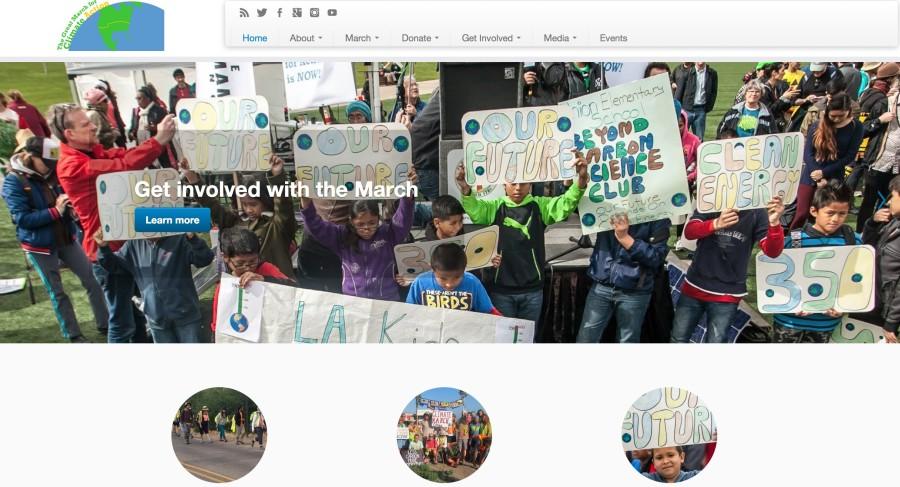Virtual March capitalizes on power of the internet to spread awareness
December 12, 2015
While protests and conferences around the world attempt to resolve the issue of climate change, our own Green Team is trying to approach the issue using a different methodology: capitalize the power of the internet.
The Green Team, consisting of president Akshay Battu (12), vice president Karen Tu (12), secretary Annie Zhou (12) and public relations officer Kshithija Mulam (11), recently joined the Virtual March, an online climate change campaign that raises awareness and asks for support for the Paris conference that kicked off on Nov. 29 regarding this issue.
Supporters can upload an image and message which will then appear on the site’s feed of posts from around the world. The introductory paragraph for the march that the Green Team took part in states that “On November 29th, millions around the world will take the streets to demand bold action on climate change from world leaders at the climate negotiations in Paris. Thousands of us will join in solidarity with a virtual march.”
While protests and conferences around the world attempt to resolve the issue of climate change, our own Green Team is trying to approach the issue using a different methodology: capitalize the power of the internet.
Annie stressed the importance of participating in the online movement towards resolving climate change issues.
“Any support is good support,” she said. “Social media is a very fast-paced way to get everyone to see [what’s going on].”
Apart from the virtual march that the Green Team participated in, multiple others also exist online in order to attempt to raise awareness and expand the impact of protests using the power of the internet by promoting that people should show strong support to those who are physically marching globally.
In addition to this, in an effort to educate the students more about global involvement, the Green Team hosted Robert Max Holmes, a Senior Scientist at the Woods Hole Research Center, who was attending the conference in Paris at the time, through Skype during long lunch on Wed. in the auditorium.
“I think online awareness is key since so many people around the world get much or even most of their information online,” Holmes said. “This is particularly true for young people, who soon will be running the show and hopefully will make better decisions with regard to energy and the environment than my generation.”
Dr. Schafer, an advisor for the Green Team who worked at the Massachusetts Woods Hole Research Center with scientist Dr. Holmes, commented on the attention they are bringing to climate change.
“What I do here in California affects what happens in the Marshall Islands, and we never had a problem that was that comprehensive and that needs unified effort all around the U.S.,” she said. “I realized that’s where the learning for young students like you can begin. Now, I’m teaching a climate change summer course in facing these online movements and problems.”
As California enters this winter, though it is expected to have some cooler weather due to El Niño, a prediction of California’s upcoming weather still forecasts a “warmer than average” month ahead. Students can raise awareness regarding the issue of climate change, whether it be taking Dr. Schafer’s summer class or simply signing on to a Virtual March.
